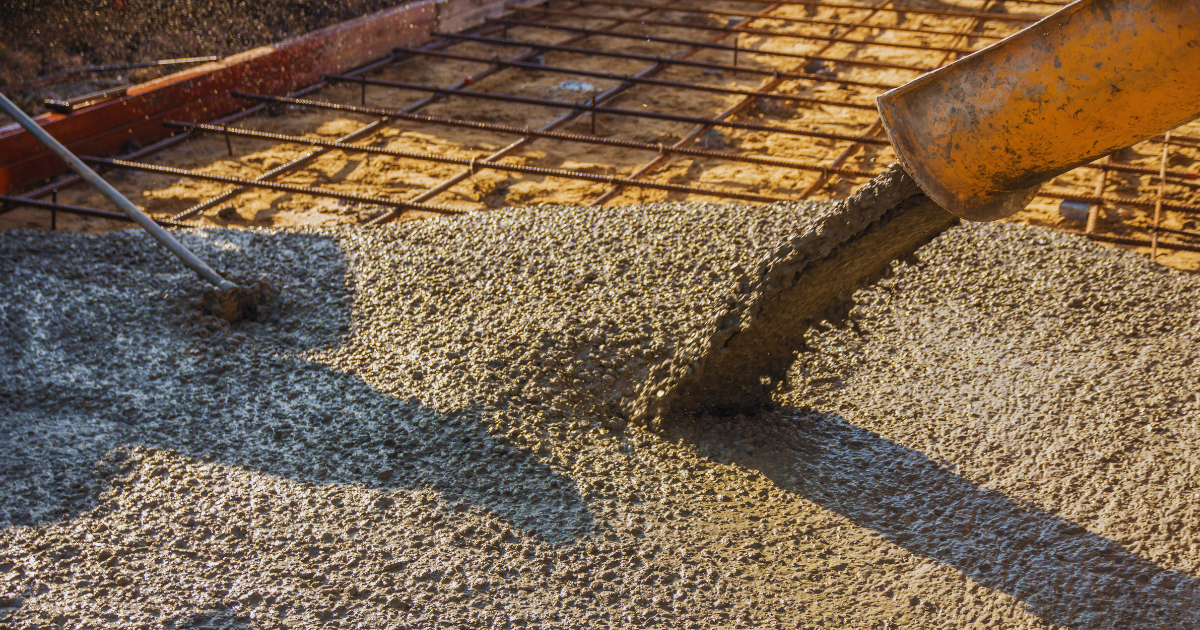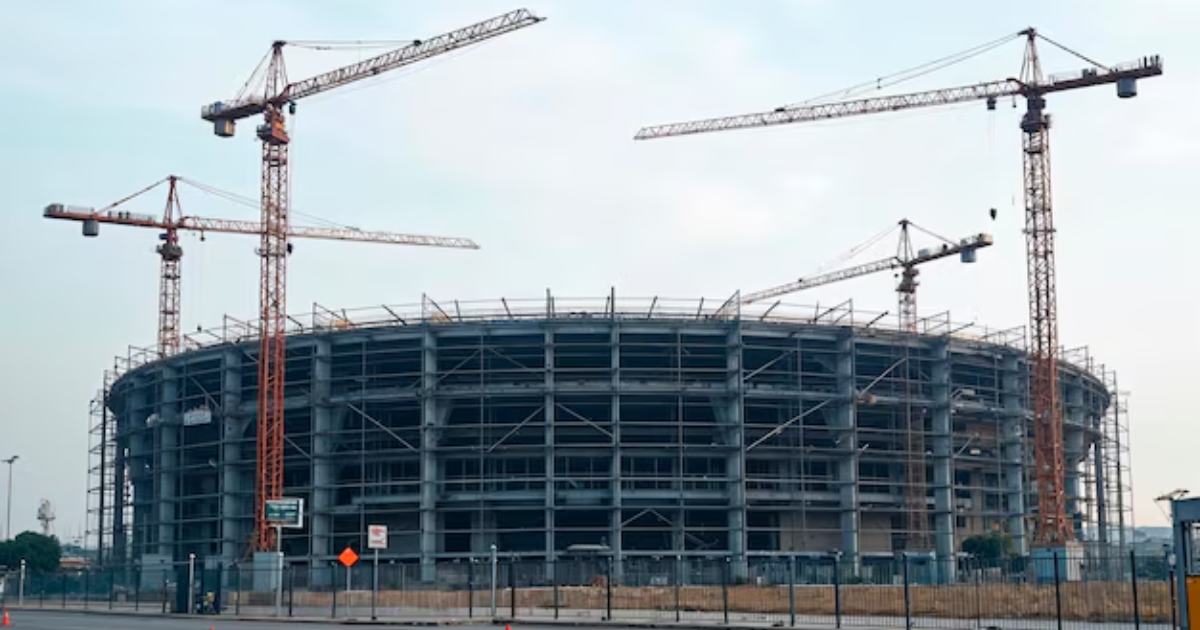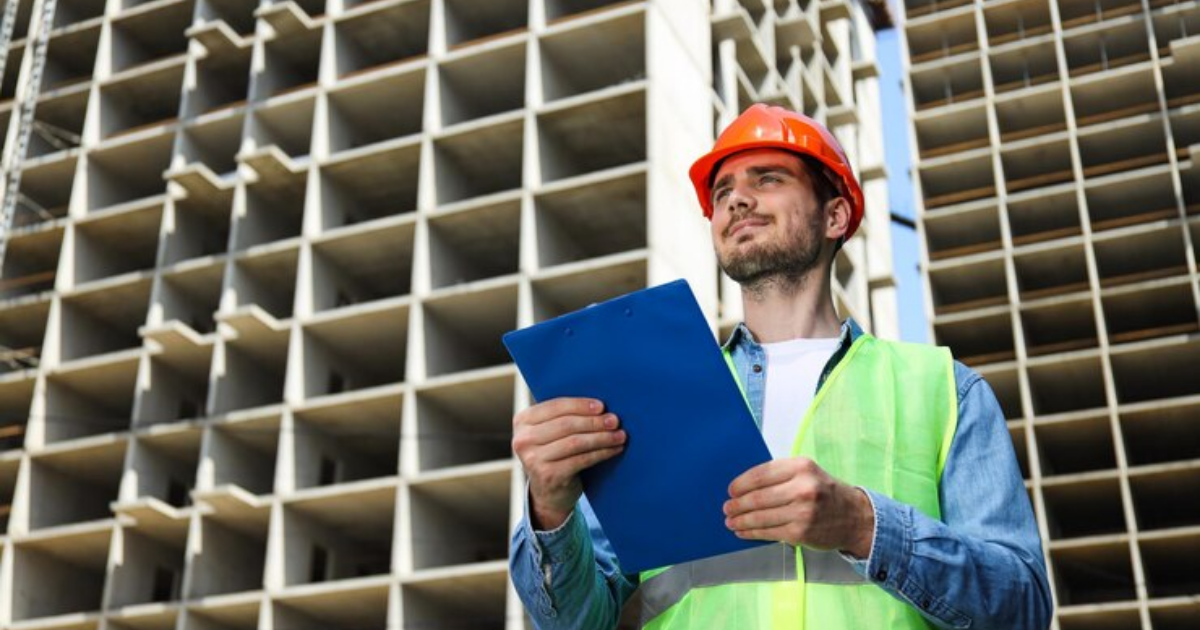Concrete is one of the most widely used construction materials, forming the backbone of structures worldwide. When it comes to sourcing concrete for construction, two main options are available: ready-mix concrete and site-mix concrete. Both have their benefits and drawbacks, and understanding the differences between these two can significantly impact the quality, efficiency, and cost of a construction project. In this blog, we’ll explore the differences between ready-mix concrete vs. site-mix concrete, comparing them in terms of production, quality control, costs, and environmental impact to help you choose the best option for your construction needs.
What is Ready-Mix Concrete?
Ready-mix concrete is pre-manufactured concrete produced in a batching plant, mixed according to specific proportions, and then transported to the construction site in a transit mixer. This ensures a high degree of uniformity and consistency in the mixture. Once it arrives on-site, the ready-mix concrete is immediately ready for use in construction.
What is Site-Mix Concrete?
Site-mix concrete, on the other hand, is mixed manually or with the help of smaller equipment on the construction site itself. The components of the concrete (cement, water, aggregates, and admixtures) are batched and mixed on-site according to the project’s requirements. This method is more traditional and still widely used, particularly for smaller-scale projects or in regions where ready-mix concrete may not be easily available.
Ready-Mix Concrete vs. Site-Mix Concrete: A Side-by-Side Comparison
1. Quality Control
One of the most significant differences between ready-mix concrete vs. site-mix concrete is the level of quality control.
- Ready-Mix Concrete: Since ready-mix concrete is produced in a controlled environment at a batching plant, the proportions of the ingredients are carefully measured, ensuring high consistency and reliability. Computerized systems regulate the mixing process, reducing the chances of human error. This level of precision results in higher strength, better durability, and uniform quality for each batch.
- Site-Mix Concrete: Site-mix concrete, on the other hand, relies on manual labor and smaller mixing equipment. While experienced workers may be able to produce good quality concrete, the likelihood of inconsistencies in the mixture is higher due to on-site conditions such as temperature variations, human error, and inadequate equipment. These inconsistencies can lead to variations in strength, durability, and performance.
Winner: Ready-mix concrete wins in terms of quality control due to its precision and consistency.
2. Time Efficiency
When comparing ready-mix concrete vs. site-mix concrete, time efficiency is a critical factor, especially for larger projects where deadlines are tight.
- Ready-Mix Concrete: One of the biggest advantages of ready-mix concrete is its time efficiency. Since the concrete is prepared in advance and delivered ready to pour, the need for on-site mixing is eliminated. This can significantly speed up the construction process, reducing downtime and allowing for faster project completion.
- Site-Mix Concrete: Site-mix concrete, by contrast, can be time-consuming. Workers need to batch, measure, and mix all the components on-site before pouring, leading to potential delays, especially in large-scale projects. Weather conditions and equipment limitations can further slow down the process.
Winner: Ready-mix concrete is the clear choice for projects that require speed and efficiency.
3. Cost Considerations
Cost is always a major factor in any construction project, and when comparing ready-mix concrete vs. site-mix concrete, each has its own cost implications.
- Ready-Mix Concrete: Ready-mix concrete can initially seem more expensive due to transportation costs and the price of batching at a plant. However, these costs are often offset by reduced labor, equipment, and storage requirements on-site. Furthermore, the speed of construction and the reduced need for on-site management can lead to long-term savings.
- Site-Mix Concrete: Site-mix concrete is generally perceived as more affordable, especially for smaller projects. However, it requires more manual labor, equipment rental, and storage for raw materials, which can drive up costs in the long run. Additionally, the possibility of redoing poor-quality work can also increase overall costs.
Winner: While ready-mix concrete might have higher upfront costs, its time efficiency and lower labor costs often make it the more cost-effective option in the long term, especially for larger projects.
4. Flexibility
Flexibility is another important consideration when comparing ready-mix concrete vs. site-mix concrete.
- Ready-Mix Concrete: Ready-mix concrete is less flexible in terms of timing since it needs to be delivered from the batching plant within a certain timeframe to prevent hardening in the transit mixer. Any delays in the construction schedule could result in wasted batches and increased costs. However, it’s flexible in terms of mix design, as batching plants can create custom mixes for specific project requirements.
- Site-Mix Concrete: Site-mix concrete offers greater flexibility in terms of timing. The mixing can be adjusted to the project’s pace without worrying about concrete hardening during transportation. Changes to the mix can also be made on-site, although this might introduce inconsistencies if not done correctly.
Winner: Site-mix concrete offers more flexibility in terms of timing, while ready-mix concrete provides flexibility in mix design.
5. Environmental Impact
Sustainability and environmental impact are increasingly important considerations in construction projects, making it vital to compare the environmental effects of ready-mix concrete vs. site-mix concrete.
- Ready-Mix Concrete: Ready-mix concrete generally has a lower environmental impact due to its efficient production process. Large batching plants are equipped with modern technology to optimize the use of materials, reduce waste, and lower emissions. Additionally, the precision of the batching process minimizes overuse of resources.
- Site-Mix Concrete: Site-mix concrete tends to have a higher environmental impact, largely due to the inefficiency of on-site mixing. Small-scale batching can lead to the overuse of materials, excessive waste, and higher energy consumption. Additionally, transportation of raw materials to the site can contribute to higher emissions.
Winner: Ready-mix concrete is more environmentally friendly due to its optimized production process and reduced material waste.
6. Storage and Space Requirements
Space is often a constraint, especially in urban construction projects. When evaluating ready-mix concrete vs. site-mix concrete, storage and space requirements must be taken into account.
- Ready-Mix Concrete: Since ready-mix concrete is delivered pre-mixed, there’s no need for on-site storage of raw materials like cement, sand, or aggregates. This makes it a perfect solution for projects with limited space.
- Site-Mix Concrete: Site-mix concrete requires substantial space to store the raw materials and mixing equipment. This can be problematic in congested areas or on smaller construction sites.
Winner: Ready-mix concrete is more convenient in terms of space management as it eliminates the need for on-site storage.
Which is Better: Ready-Mix Concrete vs. Site-Mix Concrete?
Choosing between ready-mix concrete vs. site-mix concrete ultimately depends on the specific requirements of your construction project. Here’s a quick summary:
- For large-scale projects with tight deadlines, consistent quality needs, and limited space, ready-mix concrete is the better choice due to its speed, efficiency, and high-quality control.
- For smaller projects or projects in remote locations where the transportation of ready-mix concrete might be challenging, site-mix concrete can be a more practical option due to its flexibility and lower upfront cost.
Both ready-mix concrete and site-mix concrete have their advantages and drawbacks. By understanding the differences between ready-mix concrete vs. site-mix concrete, contractors and developers can make informed decisions that will benefit their projects in terms of quality, efficiency, and cost.
Conclusion
When it comes to comparing ready-mix concrete vs. site-mix concrete, it’s clear that each has its place in the construction industry. While ready-mix concrete offers superior quality control, efficiency, and environmental benefits, site-mix concrete provides flexibility and can be cost-effective for certain types of projects. Ultimately, the best choice depends on the project’s scale, timeline, location, and specific requirements.
For those prioritizing consistency, speed, and long-term cost savings, ready-mix concrete is often the ideal choice. However, for smaller or more flexible projects, site-mix concrete can still deliver excellent results when managed effectively. Understanding these differences will help you make the right decision for your next construction project.







